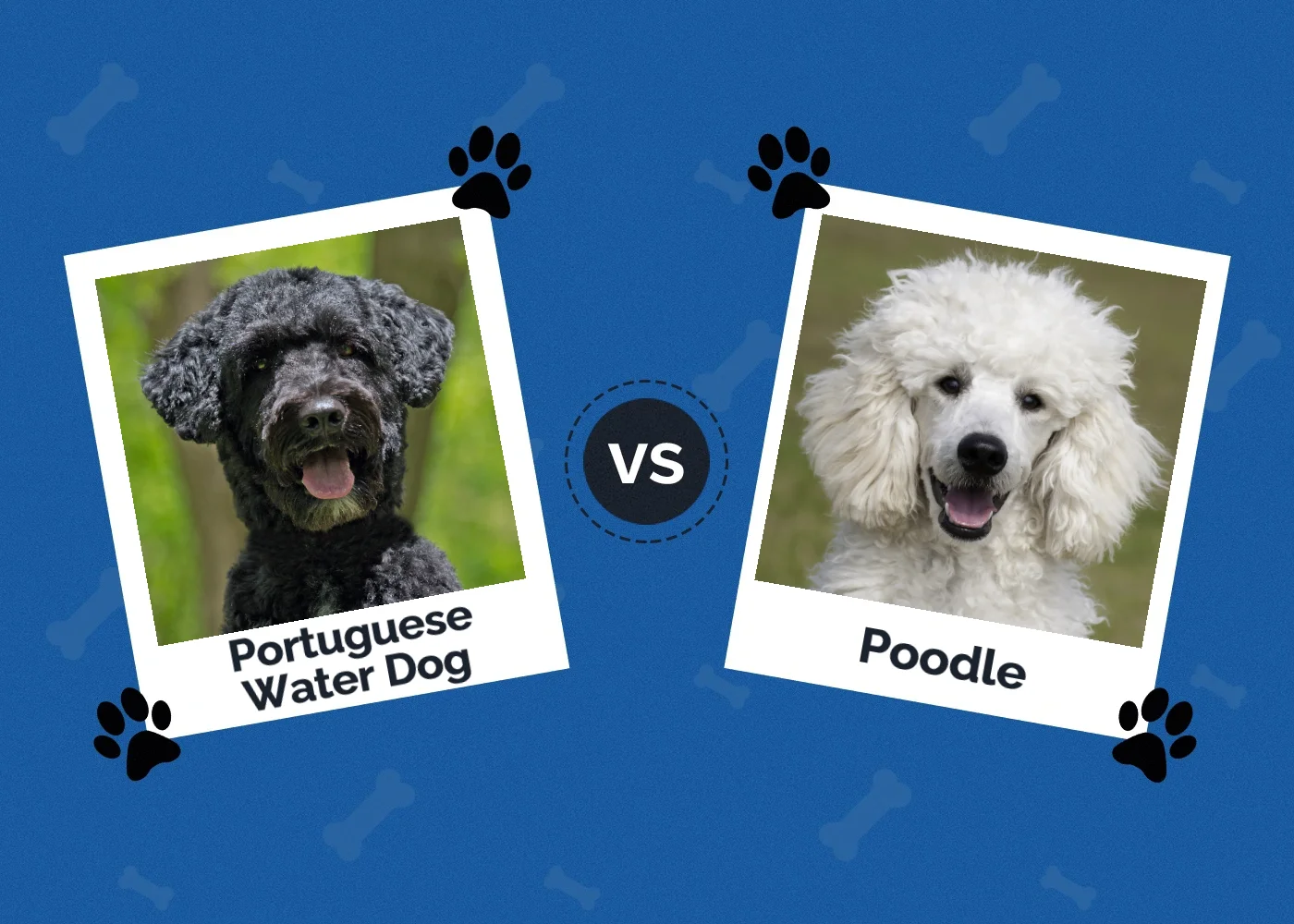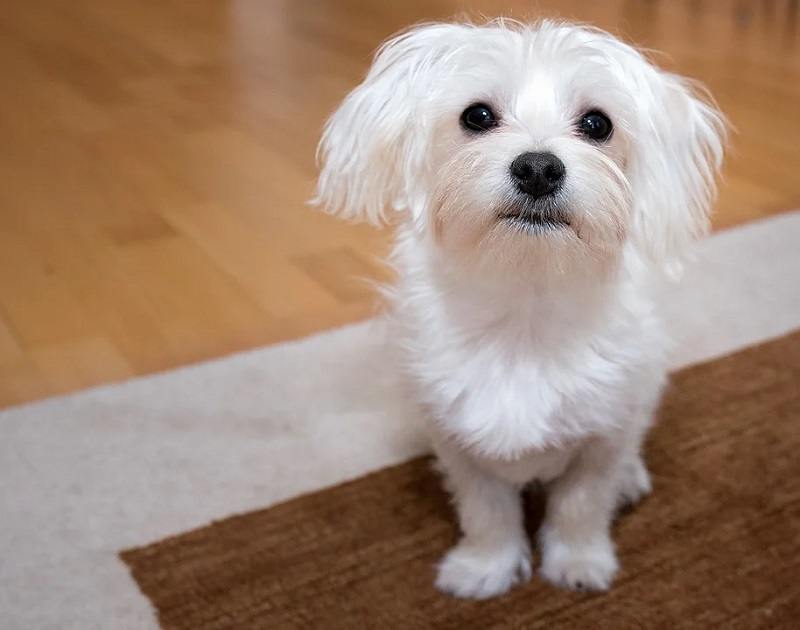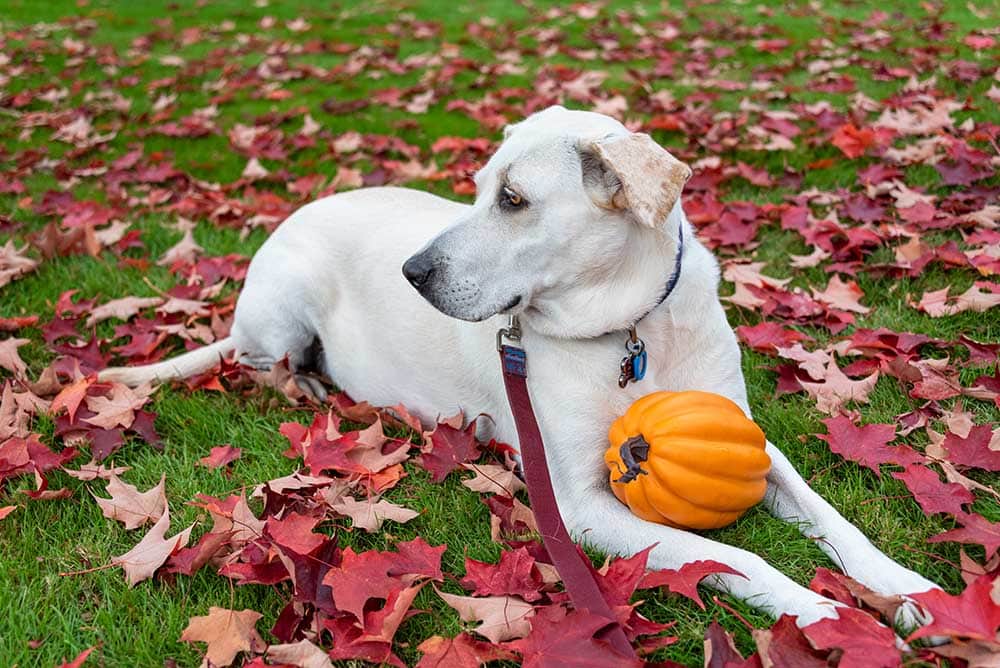Can a Westie be Black? Breed Facts & FAQ
Updated on
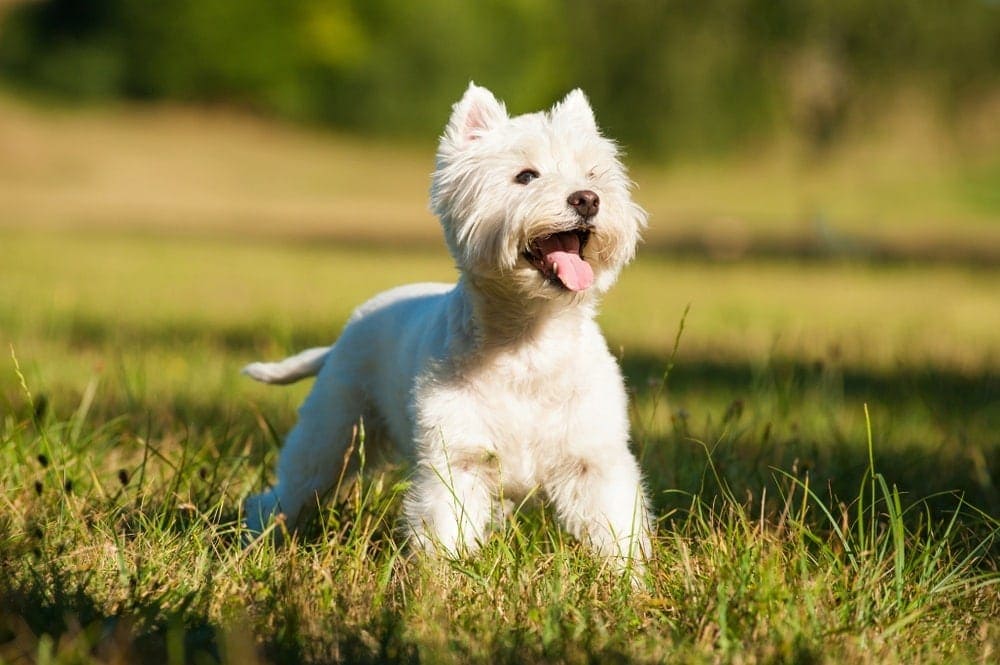
Click to Skip Ahead
Westies are a friendly and happy breed with classic terrier traits such as intelligence, independence, and a bit of stubbornness. They’re highly sought after as pets, not only for their personalities but for their carrot-shaped tails, piercing eyes, and distinctive white, harsh coats. Westies are also known by their official name: the West Highland White Terrier. The keyword here is “white” as there is no such thing as a black west highland terrier. They are genetically impossible.
Read on to learn more about the Westie’s history and its unique coat.
Can a Westie Be Black?
It is genetically impossible for Westies to have a black coat. However, some Westies may exhibit a light wheaten (off-white) coat color. This coloration is slightly different from the breed’s standard white coat but is close enough that it still falls in the range of acceptable coat colors. A Wheaten Westie’s coat may be so light that you’ll likely not notice it unless it’s standing beside a true White Westie.
Why Are Westies Only White?
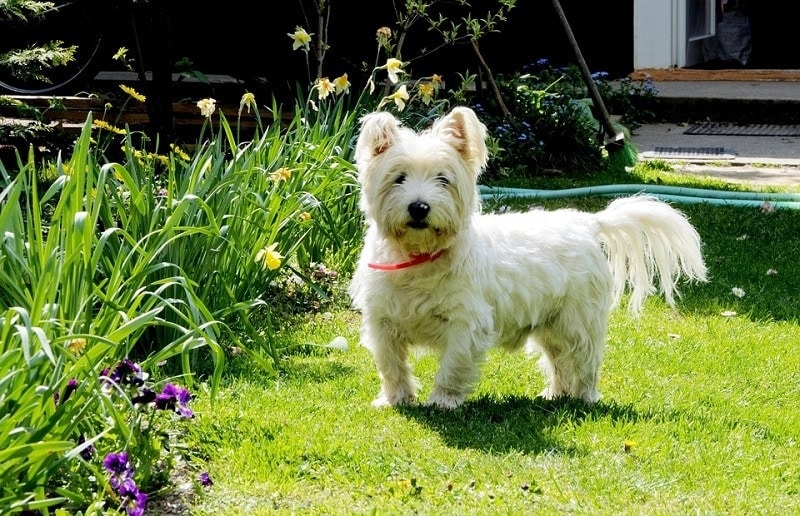
Scottish terrier breeds, like Westies and Cairn Terriers, all descended from the same roots. They had coats of various colors, including creams, reds, and blacks. So, why do modern-day Westies only have white coats?
The beginning of the Westies we’ve come to know and love today is attributed to Colonel Edward Malcom of Argyllshire, Scotland, in the 1800s. As legend has it, the colonel was hunting in the field one day with his pack of terriers when he thought he saw another animal dart through the underbrush. He shot at this animal, only to discover it was his most beloved dog that he had shot and killed. From that day onward, he swore he would only breed white dogs as they were much easier to spot in the wild.
The terriers Malcolm bred were developed from Cairn Terriers. Unfortunately, many breeders of Cairns at the time were actively culling white and cream puppies due to superstitions, so Malcolm was going against the grain in his attempts to breed white pups specifically.
The first white terrier breed that Malcolm developed became known as the Poltalloch Terrier, though several years later, he decided he didn’t want to be known as the creator of this breed. Instead, he insisted that his white terriers be named West Highland White Terriers.
What Is the Westie Coat Like?
A Westie’s coat is typically around two inches long and white in color. They have a dense, thick undercoat and a rough outer coat. Because they were developed in the Highlands of Scotland, Westie’s have wiry and highly insulated coats for protection from the elements.
Shaving a Westie dog will result in wavy and soft fur, which is unacceptable for showing purposes. Unlike other dog breeds, shaving these dogs will permanently change their fur texture. However, owners of show dogs will sometimes “strip” them to make their coats harder and coarser. Stripping involves pulling out the dead outer coat instead of clipping the hair with scissors.
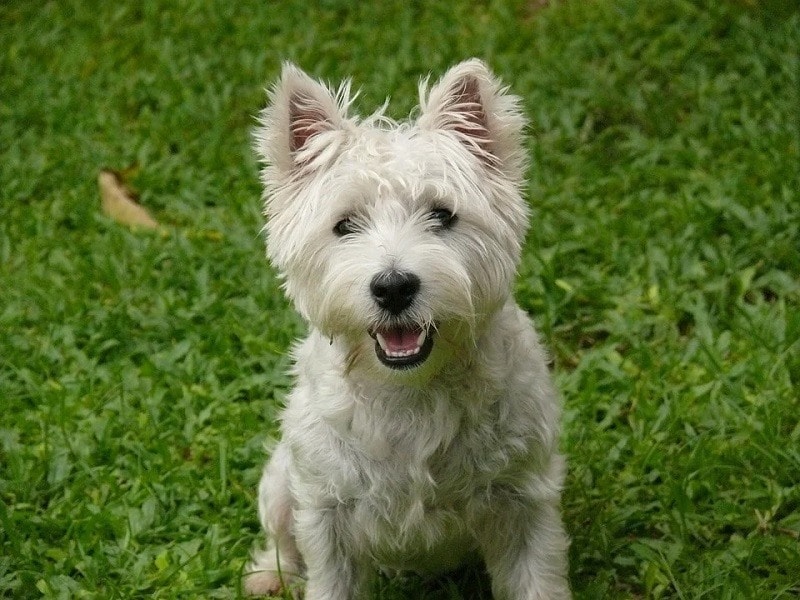
Are There Black Terriers?
Terriers are a type of dog originally bred to hunt vermin. They are typically small, wiry, and fearless. Many different breeds fall under the terrier umbrella, so finding a black terrier is possible. If you’re interested in a pup similar to the Westie, you’ll like the short-legged Cairn Terriers or Scottish Terriers.
To the untrained eye, Westies and Scotties look similar enough that black Scotties are often mistakenly confused for black Westies. Additionally, a dark-coated dog resembling a Westie could be a mixed breed, as only purebred Westies will have white coats.
Final Thoughts
Purebred Westies cannot be black; however, other terrier breeds are. You might consider a Scottie or a Cairn if you are set on adopting a black terrier.
Prospective owners should know terriers can make great family pets but require a patient and determined owner. Terriers sometimes have high energy levels and are known for their stubborn streaks. Additionally, their wiry coats require special grooming to look their best, so owners need to be willing to strip their pet’s coats every few months.
Featured Image Credit: Dora Zett, Shutterstock



